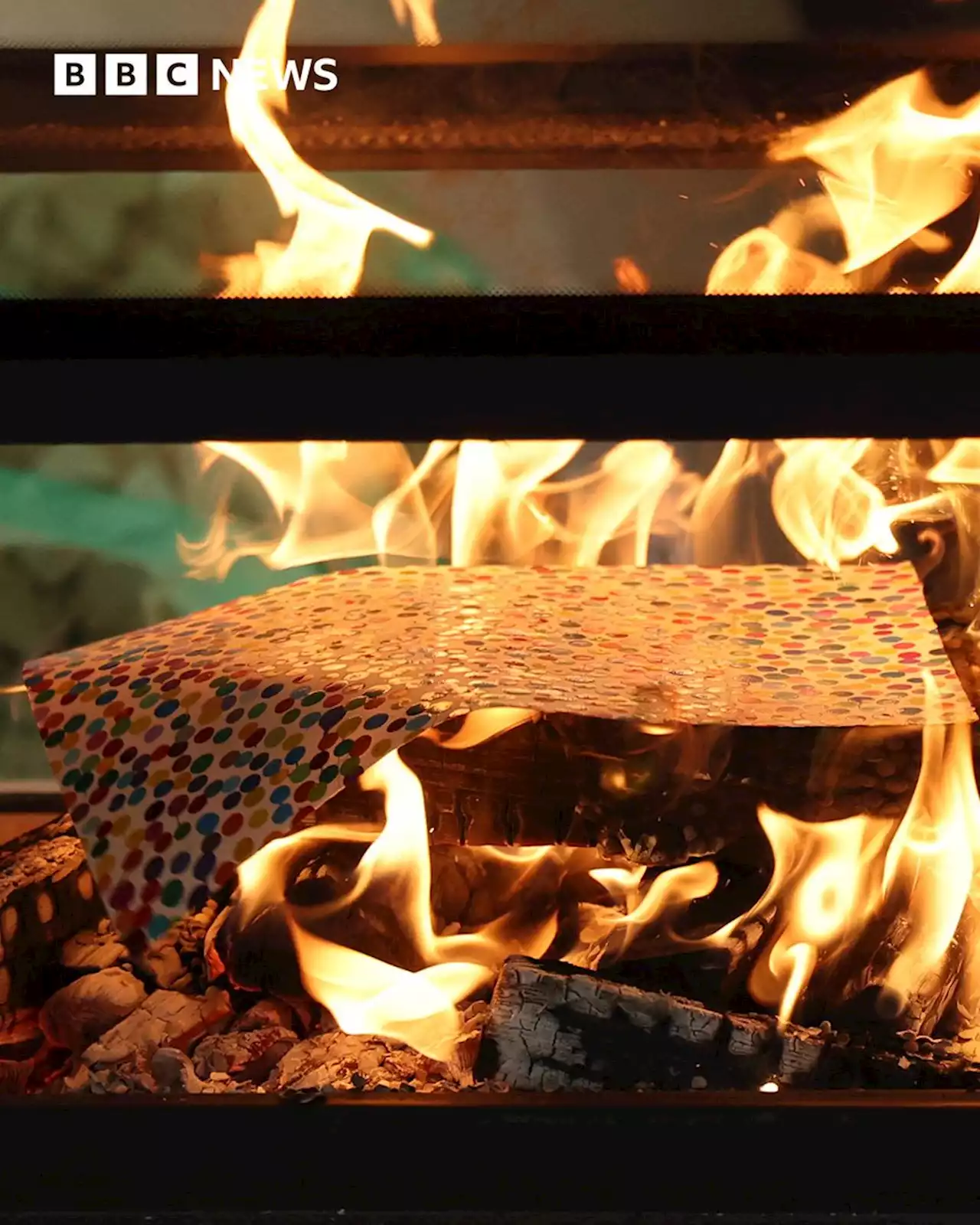CNN is closing its Vault NFT program, and some of the people who bought in are not happy about it.
CNN's foray into the world of NFTs has come to an untimely end with an announcement that
"The Vault team is honored to have partnered with amazing journalists, producers, artists, photojournalists, and collectors from all over the world during our time together, but we have decided that it's time to say goodbye to Vault by CNN," Vault said in a message posted on Twitter. Vault was launched in June 2021 as a repository for"digital collectibles"—NFTs—drawn from CNN's archives. The plan was to begin with six weekly drops including"key historical moments organized around specific themes including early CNN exclusives, world history, and Presidential Elections," followed by future drops featuring a wider range of topics.Vault website
Naturally, there was also a promise of money to be made: CNN said Vault would"experiment with a variety of selling formats including both open editions and limited editions."CNN said in the announcement that while Vault will no longer be developed or maintained,"the Vault NFT collection will live on." Unsurprisingly, not all owners of CNN NFTs found that statement satisfying.
Australia Latest News, Australia Headlines
Similar News:You can also read news stories similar to this one that we have collected from other news sources.
 A Vision-Based Framework for Predicting Multiple Sclerosis and Parkinson's Disease Gait Dysfunctions - A Deep Learning ApproachThis study examined the effectiveness of a v ision-based framework for m ultiple s clerosis (MS) and Parkinson's disease (PD) gait dysfunction prediction. We collected gait video data from multi-view digital cameras during self-paced walking from MS, PD patients and age, weight, height and gender-matched healthy older adults (HOA). We then extracted characteristic 3D joint keypoints from the collected videos. In this work, we proposed a data-driven methodology to classify strides in persons with MS (PwMS), persons with PD (PwPD) and HOA that may generalize across different walking tasks and subjects. We presented a comprehensive quantitative comparison of 16 diverse traditional machine and deep learning (DL) algorithms. When generalizing from comfortable walking (W) to walking-while-talking (WT), multi-scale residual neural network achieved perfect accuracy and AUC for classifying individuals with a given gait disorder; for subject generalization in W trials, residual neural network resulted in the highest accuracy and AUC of $\mathbf {78.1\%}$ and 0.87 (resp.), and 1D convolutional neural network (CNN) had highest accuracy of $\mathbf {75\%}$ in WT trials. Finally, when generalizing over new subjects in different tasks, again 1D CNN had the top classification accuracy and AUC of $\mathbf {79.3\%}$ and 0.93 (resp.). This work is the first attempt to apply and demonstrate the potential of DL with a multi-view digital camera-based gait analysis framework for neurological gait dysfunction prediction. This study suggests the viability of inexpensive vision-based systems for diagnosing certain neurological disorders.
A Vision-Based Framework for Predicting Multiple Sclerosis and Parkinson's Disease Gait Dysfunctions - A Deep Learning ApproachThis study examined the effectiveness of a v ision-based framework for m ultiple s clerosis (MS) and Parkinson's disease (PD) gait dysfunction prediction. We collected gait video data from multi-view digital cameras during self-paced walking from MS, PD patients and age, weight, height and gender-matched healthy older adults (HOA). We then extracted characteristic 3D joint keypoints from the collected videos. In this work, we proposed a data-driven methodology to classify strides in persons with MS (PwMS), persons with PD (PwPD) and HOA that may generalize across different walking tasks and subjects. We presented a comprehensive quantitative comparison of 16 diverse traditional machine and deep learning (DL) algorithms. When generalizing from comfortable walking (W) to walking-while-talking (WT), multi-scale residual neural network achieved perfect accuracy and AUC for classifying individuals with a given gait disorder; for subject generalization in W trials, residual neural network resulted in the highest accuracy and AUC of $\mathbf {78.1\%}$ and 0.87 (resp.), and 1D convolutional neural network (CNN) had highest accuracy of $\mathbf {75\%}$ in WT trials. Finally, when generalizing over new subjects in different tasks, again 1D CNN had the top classification accuracy and AUC of $\mathbf {79.3\%}$ and 0.93 (resp.). This work is the first attempt to apply and demonstrate the potential of DL with a multi-view digital camera-based gait analysis framework for neurological gait dysfunction prediction. This study suggests the viability of inexpensive vision-based systems for diagnosing certain neurological disorders.
Read more »
 Damien Hirst burns his own art after selling NFTsArtist Damien Hirst burns own art after NFT owners choose digital over option of physical form
Damien Hirst burns his own art after selling NFTsArtist Damien Hirst burns own art after NFT owners choose digital over option of physical form
Read more »
 Damien Hirst burns his own art after selling NFTsDamien Hirst has begun burning hundreds of his own artworks after selling a series of non-fungible tokens (NFTs). More here on what is behind the burning: 📸 Getty Images
Damien Hirst burns his own art after selling NFTsDamien Hirst has begun burning hundreds of his own artworks after selling a series of non-fungible tokens (NFTs). More here on what is behind the burning: 📸 Getty Images
Read more »
 Corrie's Chris Fountain says mini-stroke 'was like someone pulled the rug'Former Hollyoaks and Coronation Street actor Chris Fountain appeared on ITV's This Morning to talk about his recovery from a terrifying mini-stroke earlier this year
Corrie's Chris Fountain says mini-stroke 'was like someone pulled the rug'Former Hollyoaks and Coronation Street actor Chris Fountain appeared on ITV's This Morning to talk about his recovery from a terrifying mini-stroke earlier this year
Read more »
